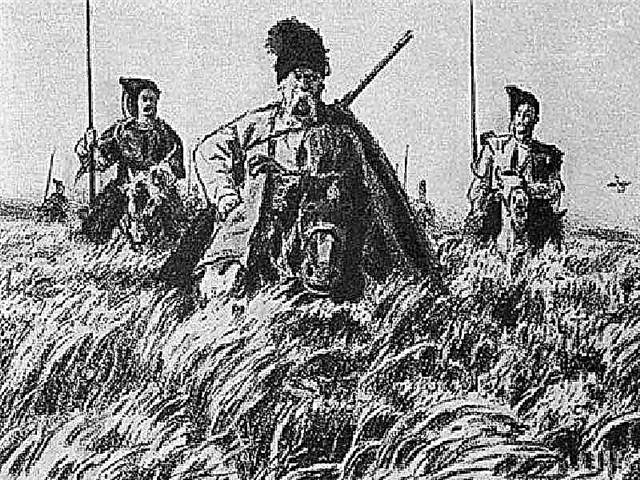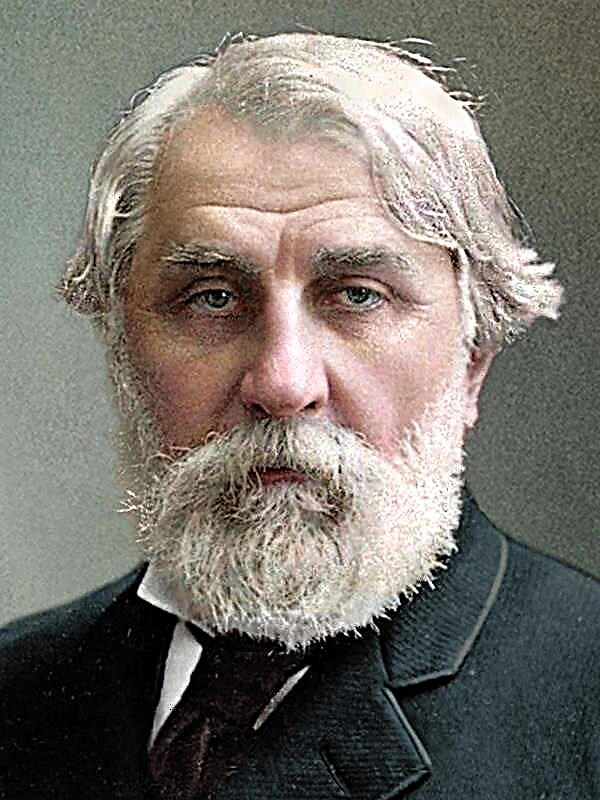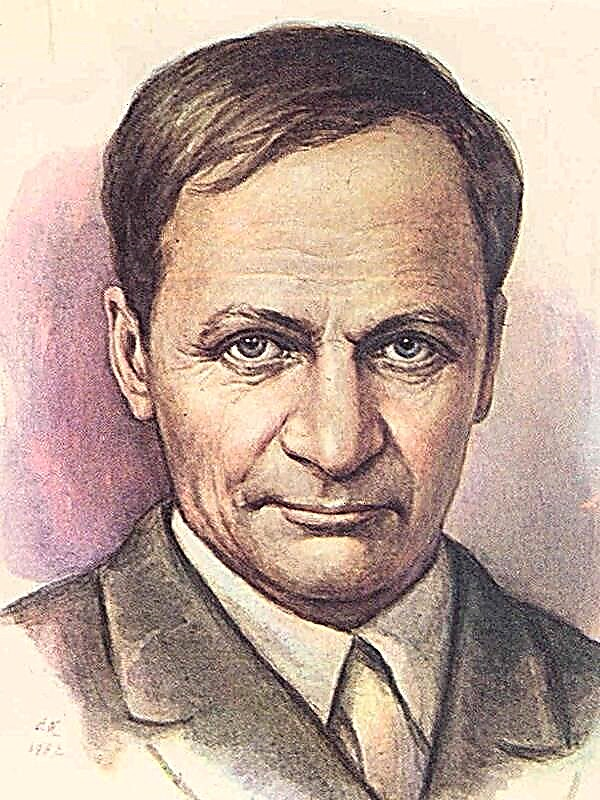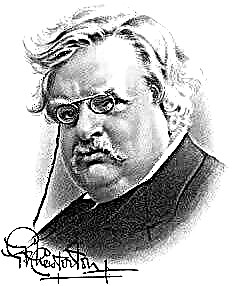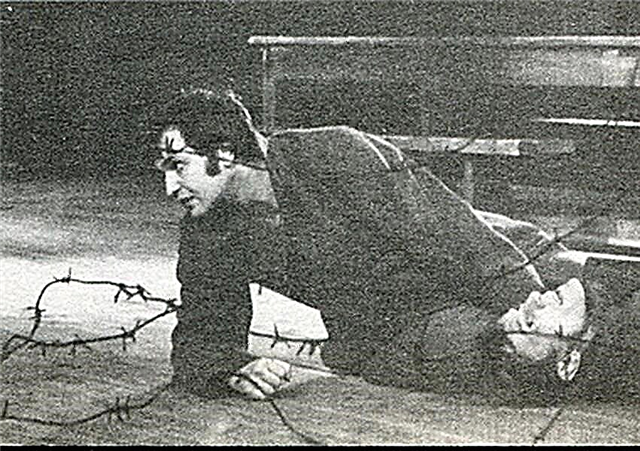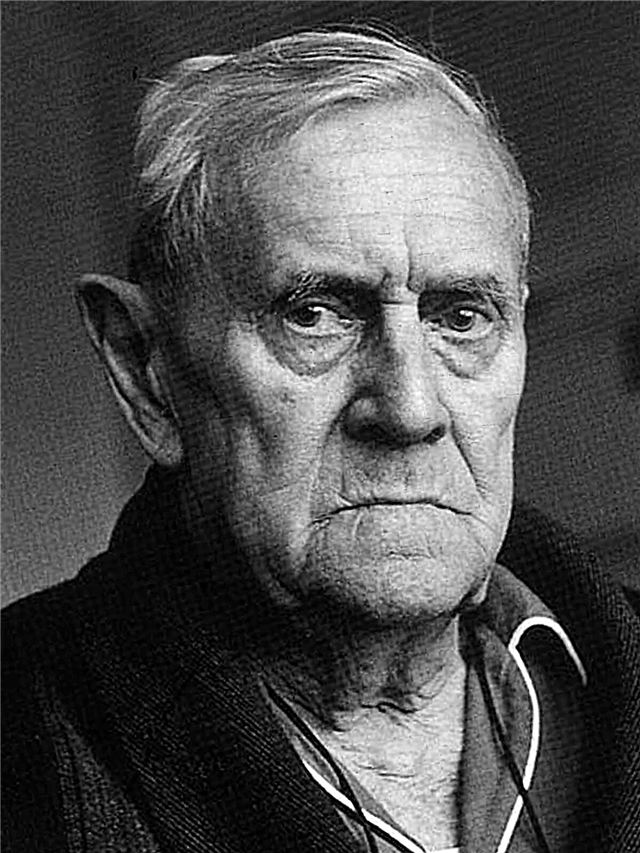In 1815, Charles-Francois Míriel was the bishop of the city of Dinh, nicknamed for the good deeds Desired - Bienvenu. This unusual person in his youth had a lot of love affairs and led a secular life - however, the Revolution broke everything. Mr. Miriel left for Italy, from where he returned as a priest. At the whim of Napoleon, the old parish priest takes the bishop's throne. He begins his pastoral activity by giving way to the beautiful building of the Episcopal Palace to the local hospital, and he himself moves into a cramped little house. He gives his considerable salary to the poor. Both rich and poor knock on the bishop's door: some come for alms, others bring it. This holy man is universally respected - he is given the gift of healing and forgiving.
In the early days of October 1815, a dusty traveler enters Ding — a stocky, stocky man in his prime. His beggarly clothes and gloomy weathered face make a repulsive impression. First of all, he goes to the city hall, and then tries to get somewhere for the night. But he is driven from everywhere, although he is willing to pay with a full-fledged coin. This person’s name is Jean Valjean. He spent nineteen years in hard labor because he once stole a loaf of bread for the seven hungry children of his widowed sister. Embittered, he turned into a wild hunted beast - with his “yellow” passport there is no place for him in this world. Finally, a woman, taking pity on him, advises him to go to the bishop. After listening to the gloomy confession of the convict, Monsignor Bienvenu orders to feed him in the guest room. In the middle of the night, Jean Valjean wakes up: six silver cutlery haunts him - the only wealth of the bishop stored in the master bedroom. Valjean on tiptoe approaches the bishop’s bed, breaks open the silver cabinet and wants to smash the head of the good shepherd with a massive candlestick, but some strange force holds him back. And he flees through the window.
In the morning, the gendarmes lead the fugitive to the bishop - this suspicious man was detained with obviously stolen silver. Monsignor can send Valjean to life for hard labor. Instead, Mr. Miriel brings out two silver candlesticks, which the guest of yesterday supposedly forgot. The last parting word of the bishop is to use the gift of becoming an honest man. Shocked convict hastily leaves the city. In his hardened soul, complex, painful work is going on. At sunset, he automatically takes away a forty-sous coin from the boy he met. Only when the baby runs away with bitter cry does Valjean understand the meaning of his act: he settles heavily on the ground and cries bitterly - for the first time in nineteen years.
In 1818, the town of Monreil flourished, and he owed it to one person: three years ago, an unknown settled here, who managed to improve the traditional local craft - the manufacture of artificial jet. Uncle Madeleine not only got rich himself, but also helped make a fortune to many others. More recently, unemployment was rampant in the city - now everyone has forgotten about need. Uncle Madeleine was distinguished by unusual modesty - neither the deputy chair nor the Legion of Honor attracted him at all. But in 1820 he had to become mayor: a simple old woman shamed him, saying that it was shameful to backtrack if there was a chance to do a good deed. And Uncle Madeleine turned into Mr. Madeleine. Everyone was in awe of him, and only the police agent Javert looked at him with extreme suspicion. In the soul of this man there was a place for only two feelings, taken to extremes - respect for power and hatred for rebellion. The judge in his eyes could never make a mistake, and the criminal could not make a mistake. He himself was blameless to disgust. Surveillance was the meaning of his life.
Once Javert repentantly informs the mayor that he must go to the neighboring city of Arras - they will judge the former convict Jean Valjean, who immediately after the liberation robbed the boy. Before, Javert thought that Jean Valjean was hiding under the guise of Mr. Madeleine - but it was a mistake. Having released Javert, the mayor falls into heavy thought, and then leaves the city. At a trial in Arras, the defendant stubbornly refuses to acknowledge himself as Jean Valjean and claims that his name is Uncle Shanmate and there is no fault for him. The judge is preparing to convict, but an unknown person gets up and announces that it is he, Jean Valjean, and the defendant must be released. News quickly spreads that the venerable mayor Mr. Madeleine turned out to be a runaway convict. Javert triumphs - he deftly arranged the snare to the criminal.
The jury decided to send Valjean to the galleys in Toulon for life. Once on the Orion ship, he saves the life of a sailor who has fallen from the yards, and then throws himself into the sea from dizzying heights. In the Toulon newspapers, a message appears that the convict Jean Valjean has drowned. However, after some time he was declared in the town of Montfermale. A vow brings him here. When he was mayor, he treated the woman who gave birth to an illegitimate child excessively severely and repented, remembering the merciful Bishop Miriel. Before his death, Phantina asks him to take care of his little girl, Cosette, whom she had to give to innkeepers Tenardieu. Spouses Tenardieu embodied a cunning and anger, combined with marriage. Each of them tortured the girl in his own way: she was beaten and forced to work half to death - and this was her wife's fault; she walked barefoot in winter and in rags - her husband was the reason. Having taken Cosette, Jean Valjean settles on the most remote outskirts of Paris. He taught the little girl to read and write and did not stop her from playing freely - she became the meaning of the life of a former convict who saved money earned from the production of jet. But Inspector Javert does not give him rest here. He arranges a night raid: Jean Valjean is saved by a miracle, quietly jumping over a blank wall into the garden - it turned out to be a convent. Cosette is taken to the monastery boarding house, and her adoptive father becomes an assistant gardener.
The respectable bourgeois Mr. Zhilnorman lives with his grandson, who has a different surname - the boy's name is Marius Ponmersi. Marius’s mother died, but he never saw his father: Mr. Gilnormann called his son-in-law a “Loire robber,” since the imperial troops were assigned to the Loire to disband. Georges Ponmersi became Colonel and became a Knight of the Legion of Honor. He almost died in the Battle of Waterloo - he was carried out from the battlefield by a marauder, who was cleaning the pockets of the wounded and killed. Marius learns all this from the dying message of his father, who turns for him into a titanic figure. The former royalist becomes an ardent admirer of the emperor and begins to almost hate his grandfather. Marius leaves the house with a scandal - he has to live in extreme poverty, almost in poverty, but he feels free and independent. During daily walks in the Luxembourg Gardens, the young man notices a noble old man who is always accompanied by a girl of about fifteen. Marius passionately falls in love with a stranger, but natural shyness prevents him from meeting her. The old man, noticing the close attention of Marius to his companion, moves out of the apartment and stops appearing in the garden. It seems to the unhappy young man that he has forever lost his lover. But one day he hears a familiar voice outside the wall - where the large Zhondret family lives. Peering into the gap, he sees an old man from the Luxembourg Gardens - he promises to bring money in the evening. Obviously, Jondrett has the opportunity to blackmail him: the interested Marius eavesdrops on how the villain conspires with the members of the gang of “Cock's Hour” - they want to arrange a trap for the old man to take everything from him. Marius notifies the police. Inspector Javert thanks him for his help and hands pistols just in case. In front of the young man, a terrible scene is being played out - the innkeeper Tenardieu, who had taken refuge under the name of Jondrett, tracked down Jean Valjean. Marius is ready to intervene, but then policemen, led by Javert, burst into the room. While the inspector deals with the bandits, Jean Valjean jumps out the window - only then does Javert understand that he missed a much larger game.
In 1832, Paris was engulfed in fermentation. Marius’s friends rave about revolutionary ideas, but the young man has something different - he continues to stubbornly search for a girl from the Luxembourg Gardens. Finally, happiness smiled at him. With the help of one of Tenardier’s daughters, the young man finds Cosette and declares her love. It turned out that Cosette also loves Marius for a long time. Jean Valjean does not suspect anything. Most of all, the former convict is worried that Tenardier is clearly watching their quarter. It comes on June 4th. An uprising erupts in the city - barricades are being built everywhere. Marius cannot leave his comrades. Alarmed, Cosette wants to send him news, and Jean Valjean finally opens his eyes: his baby has become an adult and has found love. Despair and jealousy strangle the old convict, and he goes to the barricade, which is defended by young Republicans and Marius. They come across a disguised Javert - they grab a detective, and Jean Valjean again meets his sworn enemy. He has every opportunity to deal with the person who caused him so much evil, but the noble convict prefers to free the policeman. Meanwhile, government troops are advancing: the defenders of the barricade die one after another - including the glorious little boy Gavrosh, a true Parisian tomboy. Marius crushed his collarbone with a rifle shot - he finds himself in full control of Jean Valjean.
An old convict takes Marius from the battlefield on his shoulders. Punishers roam everywhere, and Valjean descends underground - into terrible sewer drains. After a long ordeal, he gets to the surface only in order to find himself face to face with Javert. The detective allows Valjean to take Marius to his grandfather and call in to say goodbye to Cosette - this does not at all seem like a ruthless Javert. Amazement of Valjean was great when he realized that the policeman released him. Meanwhile, for Javert himself, the most tragic moment in his life comes: for the first time he has transgressed the law and released the criminal to freedom! Unable to resolve the contradiction between duty and compassion, Javert freezes on the bridge - and then there is a dull surge.
Marius has long been between life and death. In the end, youth wins. The young man finally meets with Cosette, and their love blossoms. They receive the blessing of Jean Valjean and Mr. Zhilnorman, who joyfully forgave the grandson. February 16, 1833 the wedding took place. Valjean confesses to Marius that he is a fugitive convict. Young Ponmersi is horrified. Nothing should overshadow Cosetta’s happiness, so the criminal should gradually disappear from her life - in the end, he is just an adoptive father. At first, Cosette is somewhat surprised, and then gets used to the increasingly rare visits of her former patron. Soon, the old man completely stopped coming, and the girl forgot about him. And Jean Valjean began to languish and fade away: the gatekeeper invited a doctor to him, but he just spread his hands - this man apparently lost his most precious creature for himself, and no medicine will help here. Marius believes that the convict deserves a similar attitude - no doubt it was he who robbed Mr. Madeleine and killed the defenseless Javer, who saved him from the bandits. And then the greedy Tenardier reveals all the secrets: Jean Valjean - not a thief and not a killer. Moreover: it was he who carried Marius off the barricade. The young man generously pays to the infamous innkeeper - and not only for the truth about Valjean. Once a scoundrel did a good deed, rummaging in the pockets of the wounded and killed, - the man he saved was called Georges Ponmersi. Marius and Cosette go to Jean Valjean to beg for forgiveness. The old convict dies happy - his beloved children took his last breath. The young couple orders a touching epitaph to the grave of the sufferer.

